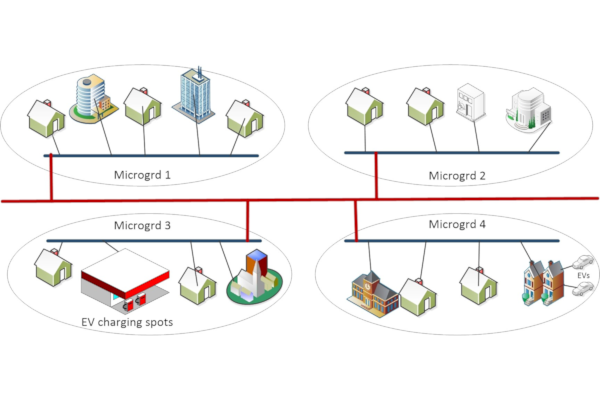Use case 3 - Promotion of cooperation among buildings in self-organised microgrids
This use-case aims at showcasing the effectiveness of a cooperative energy management scheme when applied to multiple self-organised microgrids. The use-case considers that each microgrid consists of buildings of diverse power consumption profiles that are able to generate energy through PVs and store energy in their ESS. The cooperative energy management scheme that is applied to a single microgrid considers that buildings can sell their excess energy to buildings with energy deficit, thus maximizing the utilization of the energy generated by PVs, and minimizing the energy storage losses and the dependency on the main grid.
Under PROGRESSUS, we aim to extend the cooperative energy management scheme by applying novel AI-based algorithms both for energy demand prediction, as well as for the optimal scheduling of the energy exchanges, in order to further decrease the dependency on the main grid and thus to significantly reduce the greenhouse gas emissions. Furthermore, the second objective of this use-case is to verify the effectiveness of the developed cooperative algorithms that will be developed under the PROGRESSUS project and will consider the energy exchanges among multiple microgrids that will take place based on smart contracts that will be defined with the aim of the blockchain technology.
In both cases, the evaluation of the developed algorithms will be realized by considering data from buildings located in the city of Barcelona, since the idea of Superblocks that is currently being implemented by the municipality of Barcelona is an excellent case-study for the developed cooperative solutions, where each Superblock will be considered as a self-organized microgrid. This data will be provided together with weather data as inputs to the developed HW/SW platform for the implementation of the cooperative energy management algorithms. Various case studies will be considered that will also include EVs (not just as loads but also as additional energy storage systems), EV charging stations that may be located in a microgrid, as well as additional energy generators (e.g. Combined Heat and Power (CHP) systems), while the communication requirements of such configurations will be also defined and studied.



